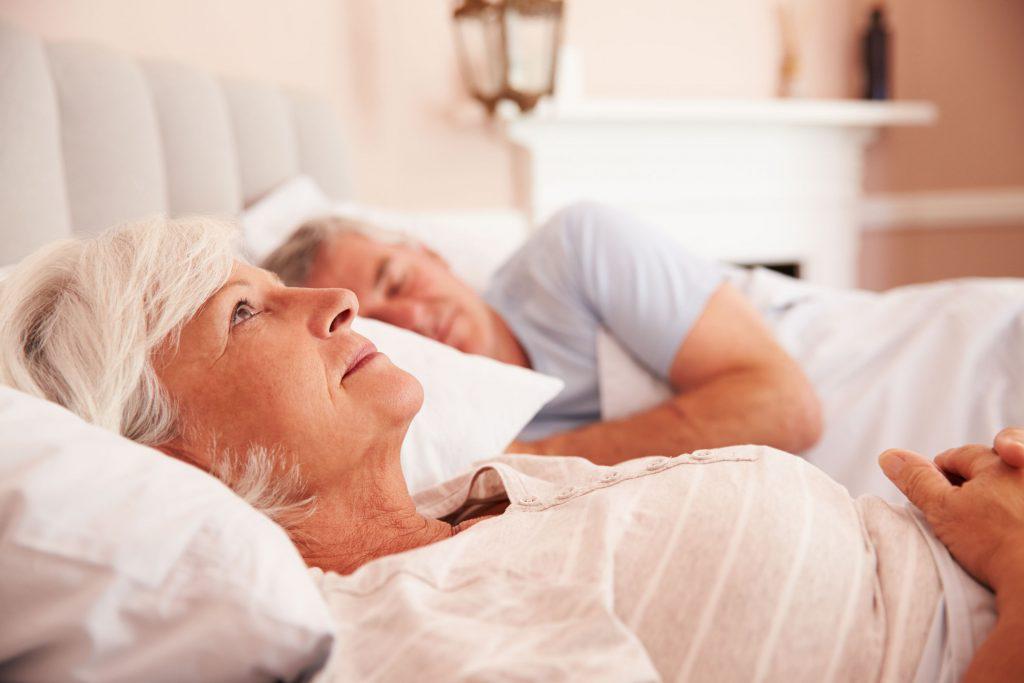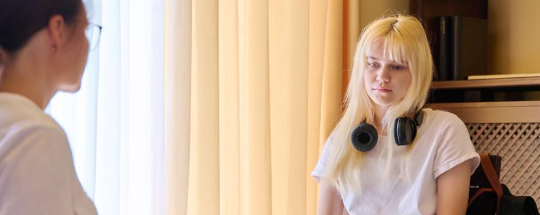 Sleeping patterns change as we get older – it is part of normal development, growth, and the life cycle. Adults often have a more difficult time falling and staying asleep. Popular belief and culture paints the picture of seniors who wake at 5am and are all ready for the day, but older adults require just as much sleep as middle aged and younger adults. Physical and mental health issues disrupt good quality sleep and can cause insomnia, snoring, and sleep apnea. Circadian rhythms change as we age, shifting sleeping and waking times. Though troubles sleeping may be common, there are some lifestyle changes that can help, not only with sleep, but with general health and wellbeing.
Sleeping patterns change as we get older – it is part of normal development, growth, and the life cycle. Adults often have a more difficult time falling and staying asleep. Popular belief and culture paints the picture of seniors who wake at 5am and are all ready for the day, but older adults require just as much sleep as middle aged and younger adults. Physical and mental health issues disrupt good quality sleep and can cause insomnia, snoring, and sleep apnea. Circadian rhythms change as we age, shifting sleeping and waking times. Though troubles sleeping may be common, there are some lifestyle changes that can help, not only with sleep, but with general health and wellbeing.
If you or your loved one is experiencing any of these sleeping issues, consulting with home healthcare services for your family can be a big help. Personal, compassionate, in-home Caregivers and Registered Nurses can assist with developing whole, individualized care plans that promote healthy sleeping, eating, and physical habits that suit each individual’s abilities, conditions, and other specific, personal factors.
If the sleep cycle is interrupted throughout the night, a person will not feel well-rested the following day. Several full cycles need to be repeated – light, deep, and REM sleep – but some seniors experience mostly light sleep and cannot properly reach deep sleep. Napping during the day can help with low quality sleep, but, depending on the length of the nap and what time of day it is taken, napping can prevent achieving deep sleep later that night. Naps should be around 30 min. or less and taken earlier in the afternoon.
Some sleep disturbances are caused by medical conditions and are side effects of medication. Speaking to a doctor about medication that doesn’t affect sleeping patterns as much, or at all, is one possibility. Changes in diet, exercise, and lifestyle should always be applied first, while sleep aids, which can cause a whole host of other problems and side effects, as a last resort.
The prevalence of insomnia and snoring also increases with age. The former is often associated with other health conditions, like depression and anxiety. Snoring is an issue for overweight individuals and may accompany a drinking habit. Loud snoring or sounds of choking in one’s sleep is potentially sleep apnea, which is a serious condition that requires treatment. Sleep apnea is associated with heart conditions like high blood pressure. Breathing stops for several seconds – sometimes as much as a whole minute – and oxygen levels in the blood decrease. This can lead to cardiovascular disease, memory problems, headaches, and depression. Sleep apnea is one of the conditions treated by an otolaryngologist and is typically overcome with lifestyle changes, the use of a CPAP machine, or surgical intervention.
To promote better quality sleep, follow these steps:
- Eat a healthy, primarily plant-based diet, with lots of vegetables, fruits, legumes, nuts, seeds, and healthy monounsaturated fats.
- Get regular exercise in the afternoon. Appropriate exercises for seniors and those with limited mobility include water fitness, chair yoga, walking, and Tai Chi.
- Avoid alcohol and other stimulants several hours before bed.
- Maintain a regular sleeping schedule and stay consistent.
- Nap in a room other than the bedroom and have rests of 30 mins or less.
- Don’t go to bed until you are extremely tired and ready to fall asleep.
Consult a Doctor or in-home Caregiver about making changes to diet and exercise in regard to achieving better quality sleep.







